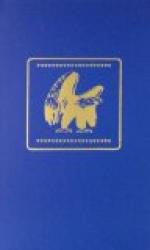Now was Sr. Walter minded of a tale he once did hear ye ingenious Margrette of Navarre relate, about a maid, which being like to suffer rape by an olde archbishoppe, did smartly contrive a device to save her maidenhedde, and said to him, First, my lord, I prithee, take out thy holy tool and piss before me; which doing, lo his member felle, and would not rise again.
The historical consistency of 1601 indicates that Twain must have given the subject considerable thought. The author was careful to speak only of men who conceivably might have been in the Virgin Queen’s closet and engaged in discourse with her.
THE CHARACTERS
At this time (1601) Queen Elizabeth was 68 years old. She speaks of having talked to “old Rabelais” in her youth. This might have been possible as Rabelais died in 1552, when the Queen was 19 years old.
Among those in the party were Shakespeare, at that time 37 years old; Ben Jonson, 27; and Sir Walter Raleigh, 49. Beaumont at the time was 17, not 16. He was admitted as a member of the Inner Temple in 1600, and his first translations, those from Ovid, were first published in 1602. Therefore, if one were holding strictly to the year date, neither by age nor by fame would Beaumont have been eligible to attend such a gathering of august personages in the year 1601; but the point is unimportant.
THE ELIZABETHAN WRITERS
In the Conversation Shakespeare speaks of Montaigne’s Essays. These were first published in 1580 and successive editions were issued in the years following, the third volume being published in 1588. “In England Montaigne was early popular. It was long supposed that the autograph of Shakespeare in a copy of Florio’s translation showed his study of the Essays. The autograph has been disputed, but divers passages, and especially one in The Tempest, show that at first or second hand the poet was acquainted with the essayist.” (Encyclopedia Brittanica.)
The company at the Queen’s fireside discoursed of Lilly (or Lyly), English dramatist and novelist of the Elizabethan era, whose novel, Euphues, published in two parts, ‘Euphues’, or the ‘Anatomy of Wit’ (1579) and ‘Euphues and His England’ (1580) was a literary sensation. It is said to have influenced literary style for more than a quarter of a century, and traces of its influence are found in Shakespeare. (Columbia Encyclopedia).




